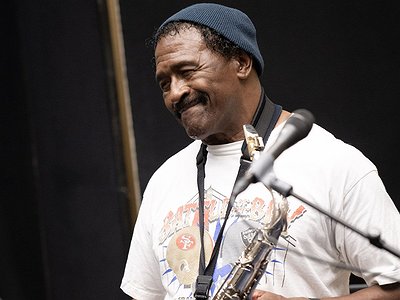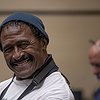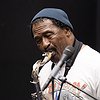Name: Napoleon Murphy Brock
Nationality: American
Occupation: Singer, saxophonist, flute player, composer, improviser
Current release: Napoleon Murphy Brock teams up with Ensemble Musikfabrik for Frank Zappa: Bad Doberan & Elsewhere, out via Yatak.
Recommendations: THE RITE OF SPRING (HUBERT LAWS) Released August 26th, 1971 CTI Producer Creed Taylor
If you enjoyed this Napoleon Murphy Brock interview, and would like to find out more about his music, visit his page on the United Mutations website.
Do you think that some of your earliest musical experiences planted a seed for your interest in improvisation?
Yes! During the time when I was in collage, and playing on the weekends at after hour jam sessions.
The arena of several musicians stepping up to present their impressions of whatever jazz selection that was being played at that moment, taught me to understand and learn how important it was to learn to improvise.
When did you first consciously start getting interested in musical improvisation? Which artists, teachers, albums or performances involving prominent use of improvisation captured your imagination in the beginning?
Miles Davis, Ernie Watts, Cannonball, Bill Evens, Wes Montgomery, Jimmy Smith, Groove Holmes, Ella, Louie, Quincy, Stanley, etc. All of the main cats back then, influenced me and my fellow musicians.
These giants were feeling what they played, and played what they felt. And always within the context of the composition!!
Tell me about your instrument and/or tools, please. What made you seek it out, what makes it “your” instrument, and what are some of the nost important aspects of playing it?
I was in a Christmas pageant at a very young age of the March of the Toys, as a clown. While coming into the auditorium, I heard the most beautiful sound from an instrument that turned out to be a Tenor Sax. I was hooked, and made it my mission to one day get and play learn how to play this fantastic instrument.
And then while in college I went to a Mongo Santimaria concert to hear "WATERMELON MAN," ...
and I heard a musician named Hubert Laws make sounds from a flute that I never imagined could come out of a flute. The next day, I bought one, and gathered every record with Hubert Laws on it, and studied it until it was part of me!
How would you describe your own relationship with your instrument – is it an extension of your self/body, a partner and companion, a creative catalyst, a challenge to be overcome, something else entirely?
Because I had learned to sing in church, school, and light opera, I was always interested in all styles of music. And in particular jazz, Broadway musicals, and movie music classics.
Well, it became a natural addition for me to make the sax and the flute an extension of my voice, and my voice an extension of the sax and flute. This recording is a perfect example of this statement:
Derek Bailey defined improvising as the search for material which is endlessly transformable. What kind of materials have turned to be particularly transformable and stimulating for you?
The same as what was just mentioned. These styles of music, jazz, Broadway, movie show musicals like WEST SIDE STORY, are within themselves, transformable!
Compositions by Burt Bacharach, Hal David, Anthony Newley, Alan Bergman, Marilyn Bergman, Michel Legrand and Leonard Bernstein!! These are my influences! And let's not forget, Mr. Frank Zappa!!!!!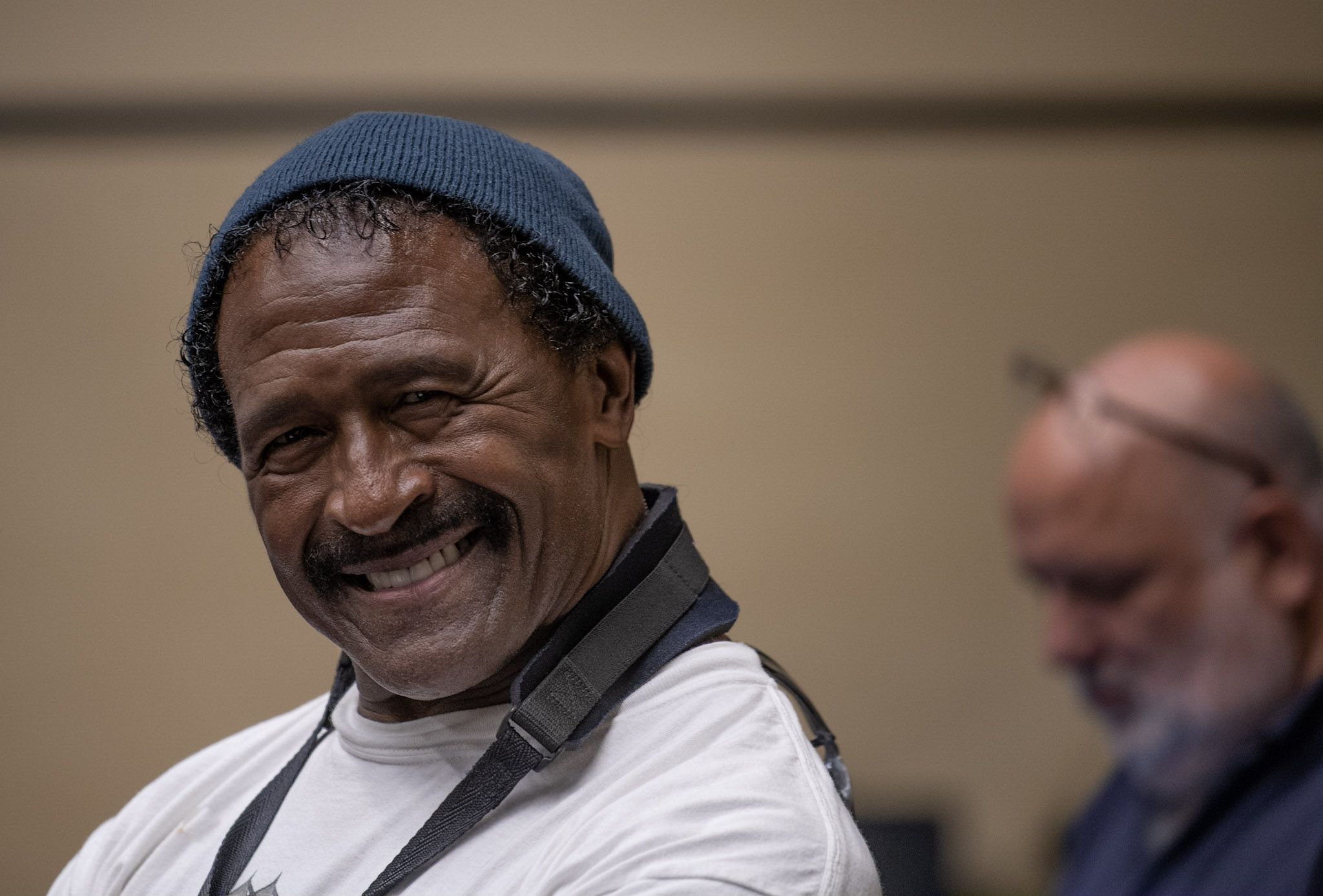
Napoleon Murphy Brock Interview Image (c) the artist
When you're improvising, does it actually feel like you're inventing something on the spot – or are you inventively re-arranging patterns from preparations, practise or previous performances? What balance is there between forgetting and remembering in your work?
When I improvise, I play or sing what I live and feel. To me, it's a statement about the truth! The truth is absolute!! And by living it through what and how you speak when you sing and play, it is felt and recognized by the listener!
It was one of the qualities that Frank loved about me most! I could write a song in real time within his forum, within an instant! He knew that what I was improvising, was actually a composition, a song, an improvised truth!! I always improvised using matters that occurred in and around all of us, so that there was a familiar reality that we could relate too!
There is a really cool studio in Liechtenstein called LITTLE BIG BEAT! And in the studio, there is an audience of probably 50 or 60, and the musicians are performing a concert. One important difference from any other concert that you have ever attended! The musicians and all that are in the audience, ALL WEAR HEADPHONES!!!!! And everyone is LISTENING!!!!
In terms of your personal expression and the experience of performance, how does playing solo compare to group improvisations?
This is one of the great benefits of the art of listening, when everyone is living within that cycle. When it becomes time for one of us to give personal expression as an individual statement, the rest of us zone in on what the individual is saying. Safely starting to speak within his character's space, knowing that the other members of the ensemble, the family, are there supporting him on his journey, making him feel comfortable and secure as Linus felt with his security blanket.
During their accompaniment they re-accent a note or two, or even a phrase that is played by him/her. Letting that person know that they are along for ride! Encouraging him to continue the pursuit his adventure, his improvisation. Sometimes repeating a phrase, like an echo machine, or a riff on a phrase or line, which say's without words, "I FEEL YA".
I can even remember when we had short drills practicing the method, without dictating it's entire purpose. Without having to have it broken down and explained in detail, because we were all already on the same ride. It was done to reinforce what we thought we knew was right, when we did it as part of how we created and composed together!!!
But there were times, and often, when we did use words to express that we were with that individuals while he navigated his course! Words like "WELL"!! or moan a wordless moan like in a gospel church setting. Letting the singer know that they were getting through with their message!!!
In your best improvisations, do you feel a strong sense of personal presence or do you (or your ego) “disappear”?
And in an arena such as it was explained an earlier response, there would be no need for EGO. Because all that is already provided, within the setting, is designed to function properly as a group effort!! ALL FOR ONE, AND ONE FOR ALL!!
What we are doing, is not yet completed, and is still in the compositional stage.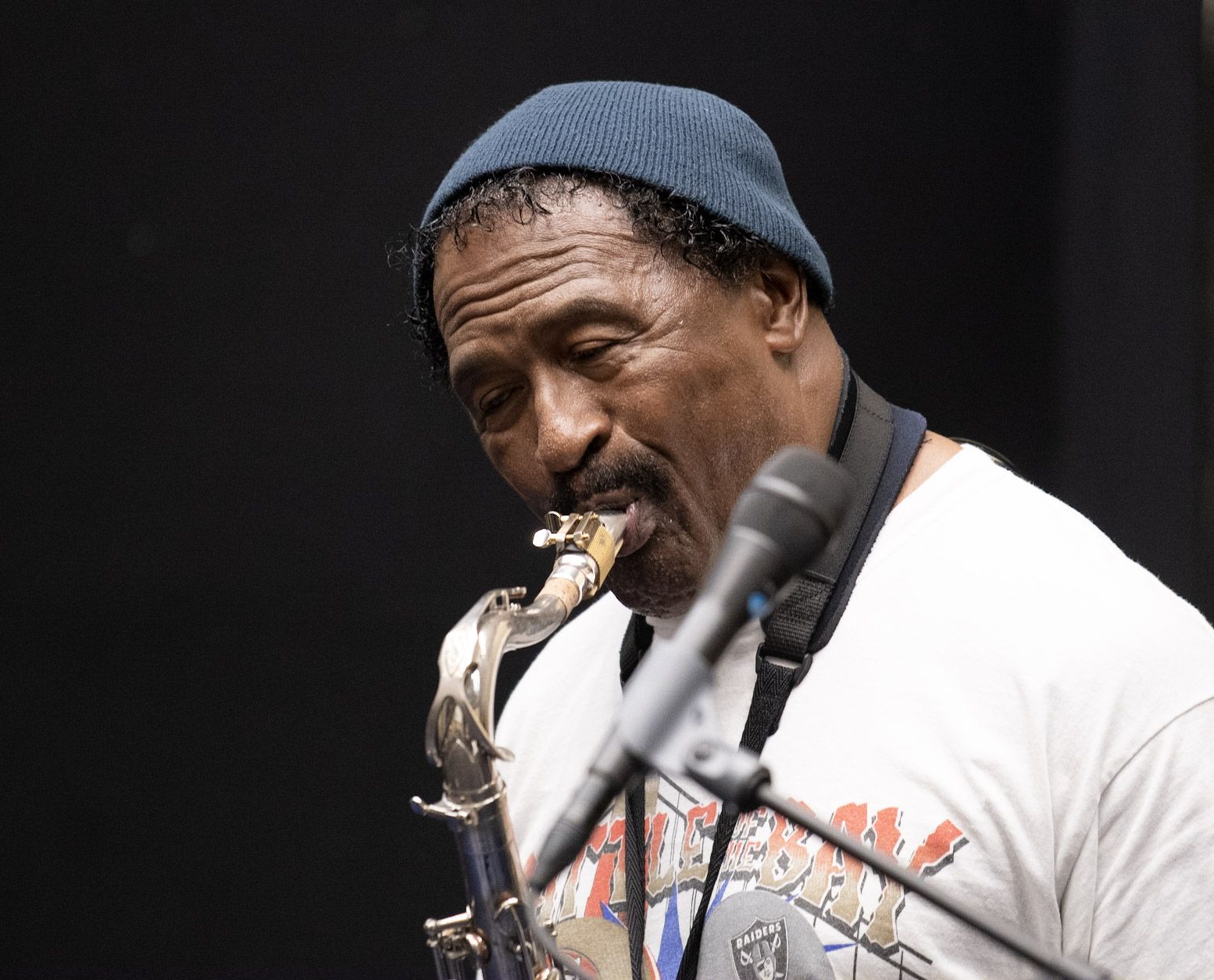
Napoleon Murphy Brock Interview Image (c) the artist
In a live situation, decisions between creatives often work without words. From your experience and current projects, what does this process feel like and how does it work?
Working without words again employs the system of the art of listening. But now relating to current projects. I found that it's not possible to employ the system used by the Master. It would require too much dialogue to explain the diagram and methodology!
So when I am contracted to perform this music with groups, ensembles, or big bands, I employ this method: I simply explain that in order to perform this music properly, and get the required response, they must LIVE THE MUSIC!! Not just play the notes, live the experience that this new form of compositional music requires!!
And therefore when they see me doing what I do, I always do it in that manner, to get the desired effect!! FUN!!!!
Stewart Copeland said: “Listening is where the cool stuff comes from. And that listening thing, magically, turns all of your chops into gold.” What do you listen for?
I always listen for creative involvement!!! How much fun are you having with this experience??
It's an opportunity to explore another avenue of musical thought!!
I have always been fascinated by the many facets of improvisation but sometimes found it hard to follow them as a listener. Do you have some recommendations for “how to listen” in this regard?
My response to an earlier question (#7) is clearly the method that accomplish this desired result: Close out all other sounds, words that others in your immediate area are saying. Use headphones!!
Another method that I always employ when preparing for a tour, or a concert where I have to sing or play new music, or with a new or different group. I play the music in my car while I drive. Alone!! Your car becomes one big head set!!! And you hear everything, pure and precise!!!!
In a way, improvisations remind us of the transitory nature of life. When an improvisation ends, is it really gone, just like a cup of coffee? Or does it live on in some form?
It depends!!! Were you listening?? Not did you hear! Were you listening?? Because if you were listening, some if not most, was absorbed! The human brain is like a sponge.
Some things we block out, and others remain to comfort us and make us feel good, or better!!
LEGAL NOTE: All above statements are created by and are the property of NAPOLEON MURPHY BROCK, and are soon to be published in one of his up coming books. The user must indicate when publishing within a forum of an interview, his name and like-ness!



